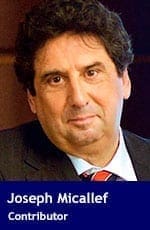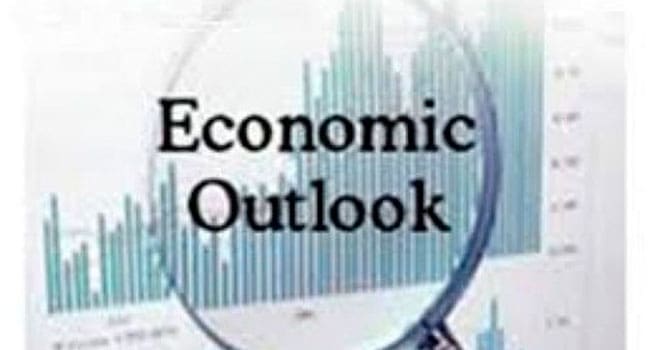 YPO, the world’s leading chief executive leadership organization, reported today that business confidence among Canadian business leaders strengthened considerably in 2017’s second quarter.
YPO, the world’s leading chief executive leadership organization, reported today that business confidence among Canadian business leaders strengthened considerably in 2017’s second quarter.
The upturn confirmed an an equally optimistic forecast by the International Monetary Fund (IMF). In its latest World Economic Outlook, the IMF predicted that Canada’s economic growth would lead the G7 countries in 2017; rising from an expected 1.9 per cent increase in gross domestic product (GDP) to a robust 2.5 per cent.
The Young Presidents’ Organization (YPO) Global Pulse Confidence Index is the only CEO economic sentiment survey that covers the world economy on a quarterly basis. Respondents answer questions about current and expected economic conditions affecting their businesses. Most CEOs surveyed manage companies with at least 50 employees and C$15 million in revenues.
The survey produces a confidence index based on the collective answers. It has historically proven to be a reliable indicator of the direction of the economy globally and by region. CEOs are drawn from a wide range of business sizes and types. About one-third of members run family companies, another one-third are entrepreneurs and the balance are professional business executives.
The YPO Global Pulse Confidence Index for Canada climbed 0.8 point to 62.9, reaching its highest level since October 2014, and remains firmly in positive growth territory. Since January 2016, the confidence index among Canadian CEOs has increased by 10 points, from 52.9 to 62.9.
Significantly, the Canadian confidence index topped the global composite score of the YPO index: 62.9 to 62.0. The global index dipped from 62.5 to 62.0 in the second quarter of 2017, reflecting a decline from 64.9 to 63.3 in the United States. Most of the world’s other economic regions also saw an increase in positive business sentiment.
The U.S. index had increased by 4.5 points over 2017 and was leading the world overall, in anticipation that the incoming administration of President Donald Trump would implement more business-friendly tax and regulatory policies. Recent weakness in responses from CEOs reflects concerns that some of these promised policy changes may have stalled.
Almost half of Canadian CEOs, 47 per cent, indicated that the overall business and economic conditions improved over the first half of 2017. Only 12 per cent felt conditions had deteriorated. The balance of 41 per cent described business conditions as unchanged. Rising commodity prices, increased tourism revenue, higher investment and an overall strong economic performance all likely contributed to the positive outlook.
Canadian CEOs also cited improved outlooks for their own organizations in the key areas of sales, employment and capital investment. Nearly three-fourths (73 per cent) of Canadian business leaders predicted increased sales in the coming year. Only three per cent anticipated a decline in revenues.
The sales component of the YPO confidence index for Canada increased by 1.5 points to 68.8. This is the highest level since October 2014. At the time, the Canadian dollar was trading at 88 cents to the U.S. dollar, suggesting that the recent strength in the Canadian dollar will continue.
The YPO Canadian Employment Index jumped to 62.0, an increase of 4.0 points, underscoring that the employment gains experienced over the last several years would continue through 2017. Almost half (48 per cent) of Canadian chief executives indicated they expected to increase employee levels in the next 12 months, while only two per cent anticipated a decline. Half of all respondents expected no change in their employee count.
More than a third, 37 per cent, of Canadian CEOs reported that they expected to increase capital investment over the next year. Only six per cent expected to reduce their investment level. Overall, the YPO Fixed Investment Confidence Index for Canada edged up 0.3 point to 59.4.
Despite the positive economic outlook, Canadian business leaders remained cautious, especially with uncertainty about pending North American Free Trade Agreement (NAFTA) renegotiations.
Overall, the YPO Global Pulse Confidence Index for the United States remained the second highest in the world. With a score of 67.0, CEOs in Australasia were the most optimistic. In the European Union, the YPO confidence index increased to 63.0, just slightly under the U.S. and Canada. The business confidence index for Asia declined by 1.8 points to 61.5. Other European countries outside the EU saw a jump of 8.5 points to 60.3, mostly on a dramatic reversal of Swiss business sentiment.
The YPO Latin America index climbed 2.1 points to 59.2, its highest level since January 2014, while the African index edged up 1.9 points to 56.3. Business confidence in the Middle East and North Africa declined by 4.5 points to 50.7. This is the lowest rating ever for this region and makes it the least confident in the world. That’s most likely a reflection of recent political events and the economic weakness that low oil prices are causing throughout the region.
Overall, Canadian business leaders are optimistic that the next 12 months augur robust growth and improved economic performance for Canada’s economy.
YPO is the premier leadership organization of chief executives in the world and functions as a global platform for chief executives to engage, learn and grow. YPO members harness the knowledge, influence and trust of the world’s most influential and innovative business leaders to inspire business, personal, family and community impact.
YPO empowers more than 24,000 members in more than 130 countries, diversified among industries and types of businesses. YPO member-run companies employ more than 15 million people around the world and generate US$6 trillion in annual revenues.
Joseph Micallef is an historian, best-selling author and, at times, sardonic commentator on world politics.
Joseph is a Troy Media Thought Leader. Why aren’t you?
The views, opinions and positions expressed by columnists and contributors are the author’s alone. They do not inherently or expressly reflect the views, opinions and/or positions of our publication.

